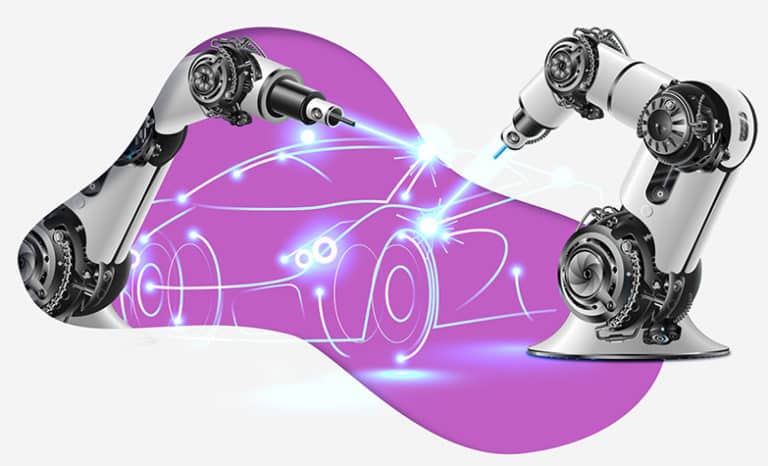TAP™ for the Automotive Industry


Automation at the core of Car Manufacturing
RPA can advance digital transformation
across multiple areas of Automotive
- Inventory Management
- Supplier Onboarding
- Freight Management
- Supply chain management
- Auto Insurance
- Vehicle Financing
- Vendor Management
- Assembly line operations and just-in-time production
Car manufacturers are subject to a high level of regulatory compliance. The Manufacturing Institute of the USA claims that on average, automotive companies spend more than 10% of their operational costs on compliance activities. RPA simplifies compliance by maintaining detailed logs of automated processes, automatically generating the reports that an auditor requests, and eliminating human mistakes that can lead to fines, sanctions or low customer satisfaction. The effort to re-configure your software robots at any time is limited, empowering your processes to fit new or updated regulations in a timely manner.
RPA enables real-time reporting allowing automotive manufacturers to determine optimal inventory levels and to calibrate current operations based on forecasts of customer demand.
Inventory management is a critical aspect of any supply chain process, especially in the automotive industry where most components are highly precision manufactured. Suppliers and manufacturers need to be aware of their inventory levels to ensure they have enough products and spare parts to meet customers’ demands. RPA systems monitor stock levels to ensure easier management of inventory. The system notifies managers when product stock levels are low and automatically reorders products when it reaches a threshold level. In addition, the RPA system enables manufacturers to predict the optimal inventory levels by using historical data and generating trends in demand.
Product selection, Payment processing and Order placement confirmation are all good fit for automation because they are repetitive and rule-based processes with low exception rates. Most businesses rely on old manual paperwork to process transactions. RPA automates order processing and payments. Software robots handle key operations of order processing like payment processing, product selection, and order confirmation efficiently. It reduces error, saves time, and increases productivity. In addition, RPA bots can be used to update information in the company’s database, process the payment and send notifications to required parties via email and text.
RPA can process in real-time warranties, service maintenance documents, insurance documents and many others.
We all know that vehicles are becoming more and more connected to the digital space. Data from sensors or the main computer can be processed automatically by software robots via cloud communications and trigger actions that might even sometimes turn out to be life-saving.
Reduce Manual Processes
Save time
Save money
Enhance IoT capabilities
Operational efficiency
Ensure compliance
Reduce paper processes
Accelerate Digital Transformation
Complement Hardware Automation
